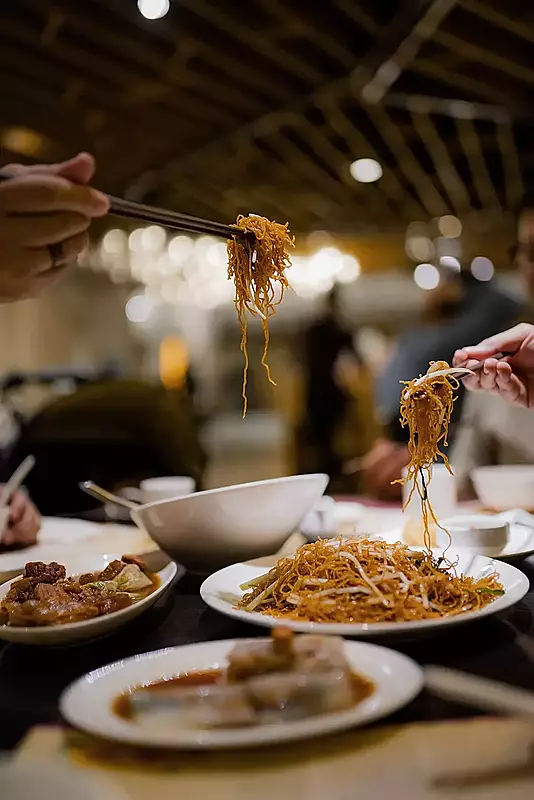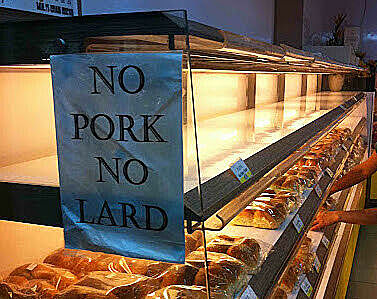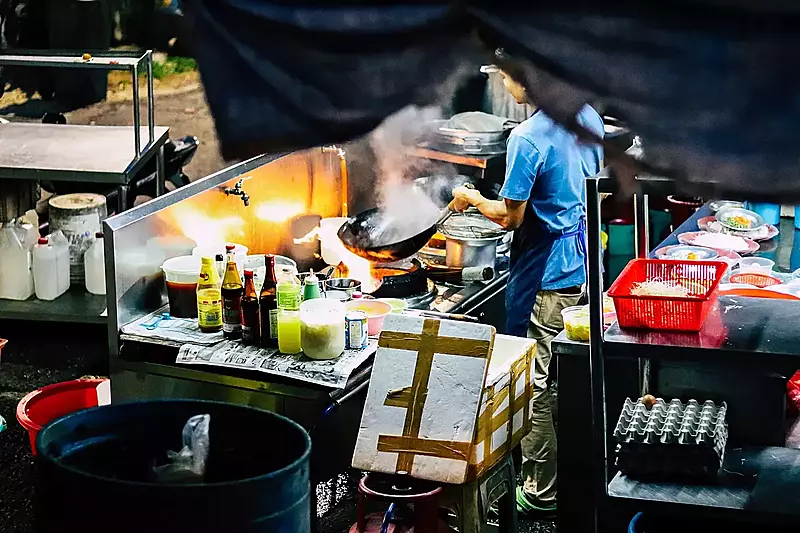6 misconceptions about halal vs halal certification
Misconceptions between halal vs halal-certified food
Eating halal is one of the key obligations of a Muslim. Allah has said in Surah Al-Baqarah, verse 186: “O mankind! Eat from whatever is on earth (that is) lawful and good.”

But what is halal?
Halal is an Arabic word which means “permissible”. Although we live in a Muslim-minority country, we are blessed that it is easy to find halal food here in Singapore.
It may seem common knowledge that halal food is a requirement in Islam. However, the intricacy of what makes food halal may at times be misunderstood by Muslims and non-Muslims alike.
Among the 6 most popular misconceptions about halal and halal certification that we in the Halal Certification Unit have encountered are:
#1: It is non-halal if it is not halal-certified
This is not entirely accurate.
When a food product is “Halal certified”, it means that a particular certifying body has done checks and audits to ensure that the product is indeed halal compliant, according to a set of objective standards.
In Singapore, Halal certification is completely voluntary, and companies (Muslim and non-Muslim) make the independent choice to decide if they wish to be halal certified.
A Halal certificate is simply added assurance to Muslim consumers.
Pro-tip: If you are unable to check if the stall displays any halal certificate, you can always check using the MuslimSG app or the Muis website.
However, a non-certified stall or product is not necessarily non-halal.
Ultimately, what makes food halal is its ingredients and the way that it is prepared.
Thus, before deciding to consume a food product, it is important for Muslims to find out if any non-halal substance or element could have been added during the preparation of the food.
Pro-tip 2: You can always approach a staff or write to the company to ask about the ingredients they use in their food products. If you have done your due diligence and do not have any doubts, the choice to consume is yours.
Pro-tip 3: If a company is not Muis halal-certified, instead of checking with Muis, it is best to ask the company directly!
#2: No Pork No Lard is the same as halal

Have you seen signages displayed in certain food places or bakeries stating that their products do not contain pork nor lard?
Contrary to popular belief, it is not an offence to display such signages here in Singapore, as it could be true that they do not add pork or lard in their products.
However, it is also important to note that halal is not only about “no pork no lard”; it is more than that.
As Muslims, it is our responsibility to ensure that the food that we consume is halal (remember 1:186?)
So, we need to have knowledge of what food is haram and what is not to help us make informed decisions.
When we see signages such as “no pork no lard” or “suitable for vegetarian”, the onus is on us to ensure that there are no other non-halal ingredients added to the food.
For example, vegetarian food such as salads are made up of vegetables which are generally halal.
However, one must also ascertain that non-halal ingredients such as dressings containing alcohol have not been added to the food. Once we have confirmed the above and we do not have doubt (was-was), we may choose to consume the food.
Remember, knowledge is key!
#3: Only Muslims can prepare halal food

This is another misconception that we often hear about halal food.
Ultimately, what makes food halal is its ingredients and the way that it is prepared (sound familiar?)
As long as the food is prepared with halal ingredients, and no cross-mixing with non-halal ingredients and/or utensils has occurred, the food is halal.
The religion of the chef does not matter!
Note: Halal-certified companies are required to send 2 of their staff for a mandatory halal foundation course. These requirements are put in place to help companies better understand halal certification requirements.
#4: If you do not feel any doubt (was-was), you can consume the food
This is also not entirely true.
Food consumption is a personal responsibility. We choose what we consume.
The onus is on us to ensure that the product is halal-compliant before consuming.
One easy way is to look for a halal certificate.
If there is none available, the responsibility falls to us, the individual Muslim.
Among the things that we can check are - whether the product contains any animal-derivative ingredient, whether alcohol was added during the preparation process, whether any ingredient contains alcohol, etc.
Food is halal when it does not contain any haram ingredient/s. Therefore, it is haram when it does. Just because you purposely do not make any effort to check if it does, does not automatically make it halal!
#5: Halal certification takes too long to process
What is “too long”?
It generally takes 8 to 12 weeks to process an application.
How long really depends on the complexity of the business operations and readiness of the applicant. The more prepared a company is, the better they will fare during the audit. This means lesser shortcomings to fix, and in turn, lesser time taken.
Muis strikes a balance between being efficient, being rigorous enough to maintain high standards, and also helping businesses who are sincere in providing a halal food option for the community.
#6: Halal certification is too expensive
What is “too” expensive?
We are transparent, and you may find our fees schedule in our website at www.halal.sg.
The fees (which are set for Muis to recover costs) depend on the complexity of the scheme and the steps required in certification.
Halal certification fees range from $60 a year for school canteen stalls to $1975 a year for manufacturing facilities exceeding 2000 square metres.
(Note: The fee above does not include product fees – which are charged per SKU. Product fees are only applicable to manufacturing facilities under the Product or Whole Plant scheme)
What are some of the other misconceptions about halal (or halal certification) that you have heard yourself?

